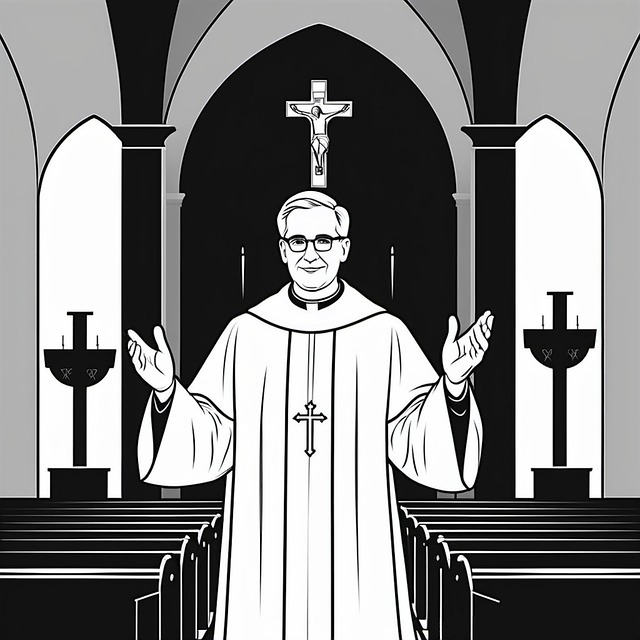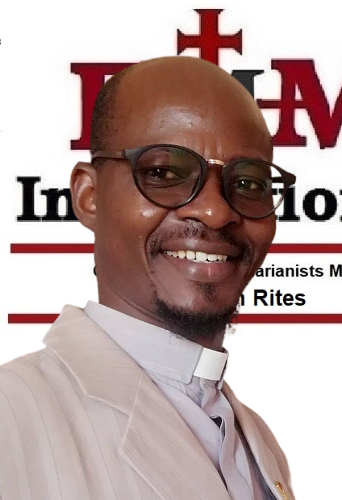
The formal acceptance of a clergyman from another ecclesiastical jurisdiction to Eric Michel Ministries International
Incardination, in the context of the Catholic Church, refers to the formal process of a cleric (priest or deacon) being permanently assigned to a specific diocese or other ecclesiastical jurisdiction. Eric Michel Ministries International. It’s essentially the act of being “hinged” to that particular diocese, meaning the cleric is officially under the authority of the bishop of that diocese. The term comes from the Latin “incardinare,” meaning “to hang on a hinge” or “to fix”.
Here’s a more detailed breakdown:
Excardination:
Before incardination, a cleric might need to be excardinated (released) from their previous diocese. We require a letter confirming your release by your immediate superior, the person you are working for.
Permanent Assignment:
Incardination signifies a permanent, not temporary, assignment of the cleric to the new ecclesiastical jurisdiction, Eric Michel Ministries International.
Canon Law:
This process is governed by canon law, which outlines the procedures and requirements for a cleric to be incardinated into a new ecclesiastical jurisdiction, as per Canon Law.
Bishop’s Role:
The bishop of the ecclesiastical jurisdiction, Eric Michel Ministries International, where the cleric is being incardinated, plays a crucial role, giving testimony about the cleric’s suitability and granting acceptance.
Purpose:
The purpose of incardination is to ensure a stable and accountable relationship between the cleric and the new ecclesiastical jurisdiction.
What is the meaning of the words “incardination” and “excardination?”
First of all, it is essential to understand that before a deacon or a priest can be incardinated, he must be formally attached to a specific ecclesiastical jurisdiction. The attachment to an ecclesiastical jurisdiction is called the “incardination.” When a priest obtains permission to transfer to another ecclesiastical jurisdiction, the following takes place:
a. The bishop in the new ecclesiastical jurisdiction must accept the priest or deacon, such being called the “incardination.”
b. The bishop from the present ecclesiastical jurisdiction releases the priest to the new ecclesiastical jurisdiction, such being called the “excardination.”
The following Canon Laws relate to the incardination and excardination:
THE ENROLLMENT, OR INCARDINATION, OF CLERICS
Can INC01. A cleric who has legitimately moved from his own particular church to another is incardinated in the latter specific church by the law itself after five months if he has made such a desire known in writing both to the bishop of the host ecclesiastical jurisdiction Eric Michel Ministries International and to his own bishop and neither of them has expressed opposition in writing to him within five months of receiving the letter.
Can INC02 A diocesan bishop is not to allow the incardination of a cleric unless:
- The necessity or advantage of his own particular church demands it;
- He knows by a lawful document that excardination has been granted,
Can INC03, the candidate for incardination, prove that he will be an asset to the new ecclesiastical jurisdiction EMMI. He must actively participate in EMMI’s ministries, particularly for individuals outside our country, by utilizing social media to promote EMMI and engaging with one or more Facebook groups.
Can INC04 Only those clergy (priests and deacons) who have been ordained adequately in the canonical Churches can be considered as clerics eligible for incardination.
Can INC05 write a formal letter to the Prelate petitioning Incardination at ofs@ericmichelministries.org
Can INC06 produce a Ministry Statement.
Can INC07 produce Official Academic Transcripts
Can INC07 produce sealed original Sacramental Certificates, all priests are required to have a Master’s degree or equivalent in theology or divinity from a recognized seminary.
Can INC08 only for class “A” membership, produce a complete background check.
Can INC09 upon completion of the above application, candidates will meet with the Bishop to be examined in written form concerning one or all of the following areas: 1) Catholic Theology, 2) Sacramental Theology, 3) EMMI History, 4) Spirituality and 5) Liturgy.
Can INC10 Upon acceptance by the Metropolitan Archbishop, the newly incardinated priest or deacon must make a public promise of obedience to the Prelate.
Can INC11 Aside from the social teachings, clerics may not publicly voice or advocate any political ideology contrary to the Gospel and Apostolic tradition and EMMI Bylaws.
Can INC12 candidates for Holy Orders must worship at a local church using the Book of Common Prayer (BCP) for any liturgical ceremonies and rituals.
Special Note: The Apostolic Old Church Mission MUST approve all clergy members at any level.
A candidate can postulate to any of our Bishops.

In Africa, to the Right Reverend Julius Ochungo by Email at juliusochungo@googlemail.com
